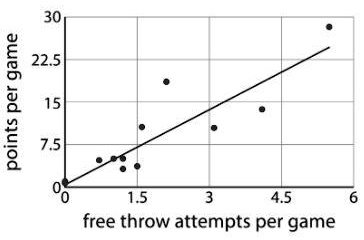OpenAI Facing FTC Investigation: Examining The Future Of AI And Data Privacy

Table of Contents
The FTC Investigation: Key Allegations and Concerns
The Federal Trade Commission (FTC) investigation into OpenAI marks a significant moment in the ongoing debate surrounding AI ethics and data privacy. The investigation centers on allegations that OpenAI violated Section 5 of the FTC Act, which prohibits unfair or deceptive practices. This suggests the FTC believes OpenAI's practices may have harmed consumers.
-
Allegations of violations of Section 5 of the FTC Act (unfair or deceptive practices): The FTC's concern likely stems from OpenAI's data collection and usage practices, particularly concerning the vast datasets used to train models like GPT-4. The question arises whether users were adequately informed about how their data was being collected, used, and protected. The investigation will scrutinize whether OpenAI's data practices were transparent and aligned with user expectations.
-
Concerns about the collection, use, and protection of sensitive user data: Generative AI models, by their nature, require massive datasets for training. This raises concerns about the potential for sensitive personal information to be inadvertently included and misused. The FTC will likely investigate OpenAI's methods for identifying and protecting sensitive data within its training datasets.
-
Potential risks of biased algorithms and discriminatory outcomes: AI models are only as good as the data they are trained on. Biased data can lead to AI systems that perpetuate and amplify existing societal inequalities. The FTC investigation will likely assess whether OpenAI has taken sufficient steps to mitigate bias in its algorithms and ensure fair and equitable outcomes. GPT-4, for example, could potentially exhibit biases learned from the massive datasets it was trained on, leading to discriminatory outputs in various applications.
-
Lack of transparency regarding data handling practices: Transparency is crucial for building trust and ensuring accountability in AI development. The FTC may find OpenAI lacking in its transparency around data collection, processing, and storage practices. This lack of transparency could be considered a deceptive practice under Section 5.
The potential consequences of the FTC investigation are significant. OpenAI could face substantial fines and be required to implement significant changes to its data handling practices. This investigation could set a precedent for future regulation of AI companies.
Data Privacy in the Age of Generative AI: Emerging Challenges
Generative AI models like those developed by OpenAI present unique challenges to data privacy. These models require unprecedented amounts of data for training, raising serious concerns about data security and user consent.
-
The vast amounts of data required to train these models: Training powerful AI models necessitates colossal datasets encompassing diverse sources. The sheer volume of data makes it difficult to guarantee complete anonymity and data security.
-
The difficulty of anonymizing data effectively: Even with anonymization techniques, there's a risk of re-identification. Sophisticated methods could potentially reveal an individual's identity despite anonymization efforts.
-
The potential for data breaches and unauthorized access: The massive datasets used to train these models are attractive targets for cyberattacks, posing a significant risk of data breaches and unauthorized access.
-
The need for stronger data protection regulations: Current data protection regulations may be inadequate to address the unique challenges posed by generative AI. This necessitates a reassessment and potential strengthening of existing regulations or the introduction of new ones specifically tailored to AI.
Differential privacy and other privacy-enhancing techniques are crucial for mitigating these risks. Differential privacy adds noise to the data, making it difficult to identify individual data points while preserving the overall statistical properties. However, achieving true privacy within large AI training datasets remains an ongoing research challenge. Meaningful user consent and robust user control over data usage are also critical for responsible AI development.
Algorithmic Bias and Fairness: A Critical Concern
Algorithmic bias is a major ethical concern in AI development. AI systems trained on biased data can perpetuate and amplify existing societal biases, leading to discriminatory outcomes.
-
The potential for AI to perpetuate and amplify existing societal biases: If the training data reflects existing societal biases, the resulting AI model will likely reflect those biases, leading to unfair or discriminatory outputs.
-
The need for fairness and accountability in AI development: It's imperative to develop AI systems that are fair, equitable, and accountable. This requires careful consideration of potential biases in data and algorithms, along with robust methods for detecting and mitigating bias.
-
Methods for mitigating bias in algorithms (e.g., data augmentation, algorithmic fairness techniques): Techniques like data augmentation (adding more data to balance representation) and algorithmic fairness techniques (e.g., fairness constraints) can help mitigate bias, but they require significant effort and expertise.
The potential for discriminatory outcomes extends to many AI applications. In loan applications, biased AI could unfairly deny loans to certain demographic groups. In hiring processes, biased AI could discriminate against qualified candidates. In criminal justice, biased AI could lead to inaccurate risk assessments and unfair sentencing.
The Future of AI Regulation: Lessons from the OpenAI Investigation
The FTC investigation into OpenAI will significantly impact the future of AI regulation. It highlights the need for increased scrutiny, stronger regulations, and greater transparency within the AI industry.
-
Increased scrutiny of AI companies' data handling practices: Expect increased regulatory oversight of how AI companies collect, use, and protect user data. This includes stricter compliance requirements and more rigorous audits.
-
Development of stricter data privacy regulations for AI: New or amended legislation is likely, addressing the unique data privacy challenges posed by generative AI models.
-
Greater emphasis on algorithmic transparency and accountability: Regulations will likely mandate greater transparency in AI algorithms, allowing for external scrutiny and accountability for biased or discriminatory outcomes.
-
Potential for industry self-regulation alongside government oversight: While government oversight will be crucial, industry self-regulation can also play a role in establishing ethical guidelines and best practices.
The GDPR (General Data Protection Regulation) in Europe and the CCPA (California Consumer Privacy Act) in the US are examples of existing regulations that will likely inform future AI-specific legislation. International cooperation on AI governance will also be critical to establish global standards for responsible AI development.
Conclusion
The FTC investigation into OpenAI's practices underscores the urgent need for greater transparency, accountability, and ethical considerations in the development and deployment of AI. This investigation highlights the significant challenges posed by generative AI models to data protection and the critical need for robust regulatory frameworks. The vast amounts of data used to train these models, coupled with the potential for algorithmic bias and discriminatory outcomes, necessitates a proactive and comprehensive approach to AI regulation. We must demand stronger data protection measures and actively participate in shaping the future of AI and data privacy. Stay informed about the evolving landscape of AI regulation and advocate for responsible AI development. Learn more about the OpenAI investigation and its implications for [link to relevant resource].

Featured Posts
-
 Golf News Mc Ilroy And Lowry To Play Zurich Classic Together
May 12, 2025
Golf News Mc Ilroy And Lowry To Play Zurich Classic Together
May 12, 2025 -
 Mask Singer 2025 Chantal Ladesou A T Elle Revele L Identite De L Autruche
May 12, 2025
Mask Singer 2025 Chantal Ladesou A T Elle Revele L Identite De L Autruche
May 12, 2025 -
 Fan Theories Why Henry Cavill Is The Top Choice For Wolverine In World War Hulk
May 12, 2025
Fan Theories Why Henry Cavill Is The Top Choice For Wolverine In World War Hulk
May 12, 2025 -
 The Most Impressive Mansions Featured On Mtv Cribs
May 12, 2025
The Most Impressive Mansions Featured On Mtv Cribs
May 12, 2025 -
 The Next Pope Nine Cardinals In The Running After Pope Francis
May 12, 2025
The Next Pope Nine Cardinals In The Running After Pope Francis
May 12, 2025
Latest Posts
-
 Obituaries Celebrating The Lives Of Local Residents
May 13, 2025
Obituaries Celebrating The Lives Of Local Residents
May 13, 2025 -
 Orange County Basketball Game Scores And Player Statistics For February 20th
May 13, 2025
Orange County Basketball Game Scores And Player Statistics For February 20th
May 13, 2025 -
 Bay Area Weather Severe Thunderstorm Warning And Safety Tips
May 13, 2025
Bay Area Weather Severe Thunderstorm Warning And Safety Tips
May 13, 2025 -
 Recent Obituaries Local Residents Who Passed Away
May 13, 2025
Recent Obituaries Local Residents Who Passed Away
May 13, 2025 -
 Orange County Scores And Player Stats Thursday February 20th
May 13, 2025
Orange County Scores And Player Stats Thursday February 20th
May 13, 2025
